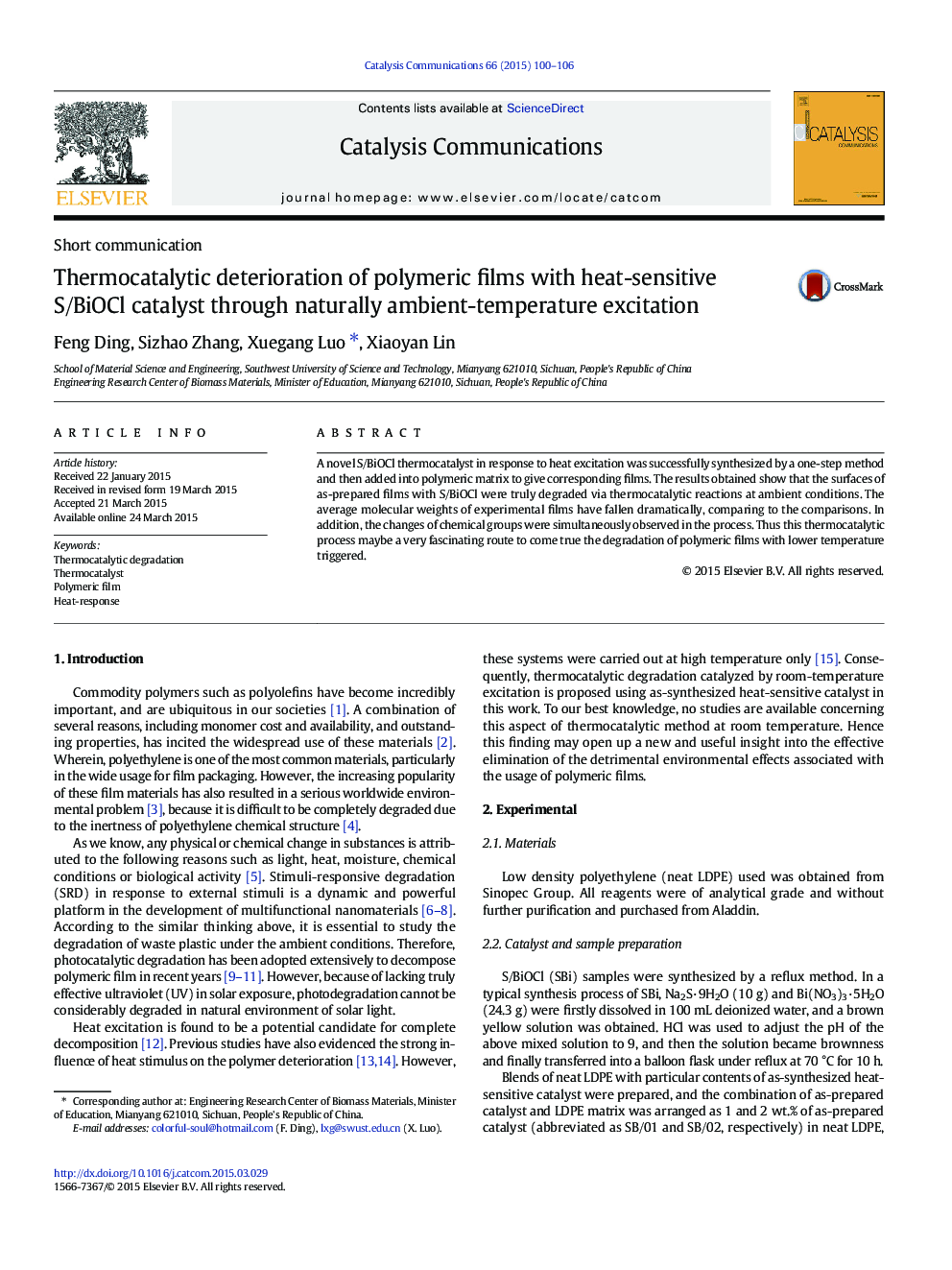| Article ID | Journal | Published Year | Pages | File Type |
|---|---|---|---|---|
| 49722 | Catalysis Communications | 2015 | 7 Pages |
•Synthesis of heat-sensitive S/BiOCl catalyst by one-step method for the first time.•Thermocatalytic degradation using room-temperature excitation was demonstrated.•Results suggest that the surface morphology was firstly deteriorated.
A novel S/BiOCl thermocatalyst in response to heat excitation was successfully synthesized by a one-step method and then added into polymeric matrix to give corresponding films. The results obtained show that the surfaces of as-prepared films with S/BiOCl were truly degraded via thermocatalytic reactions at ambient conditions. The average molecular weights of experimental films have fallen dramatically, comparing to the comparisons. In addition, the changes of chemical groups were simultaneously observed in the process. Thus this thermocatalytic process maybe a very fascinating route to come true the degradation of polymeric films with lower temperature triggered.
Graphical abstractThermocatalytic degradation of polymeric films responding to heat stimulus under room temperature is reported. The mechanism in regard to the deteriorations of polymeric films is also proposed in detail.Figure optionsDownload full-size imageDownload as PowerPoint slide
